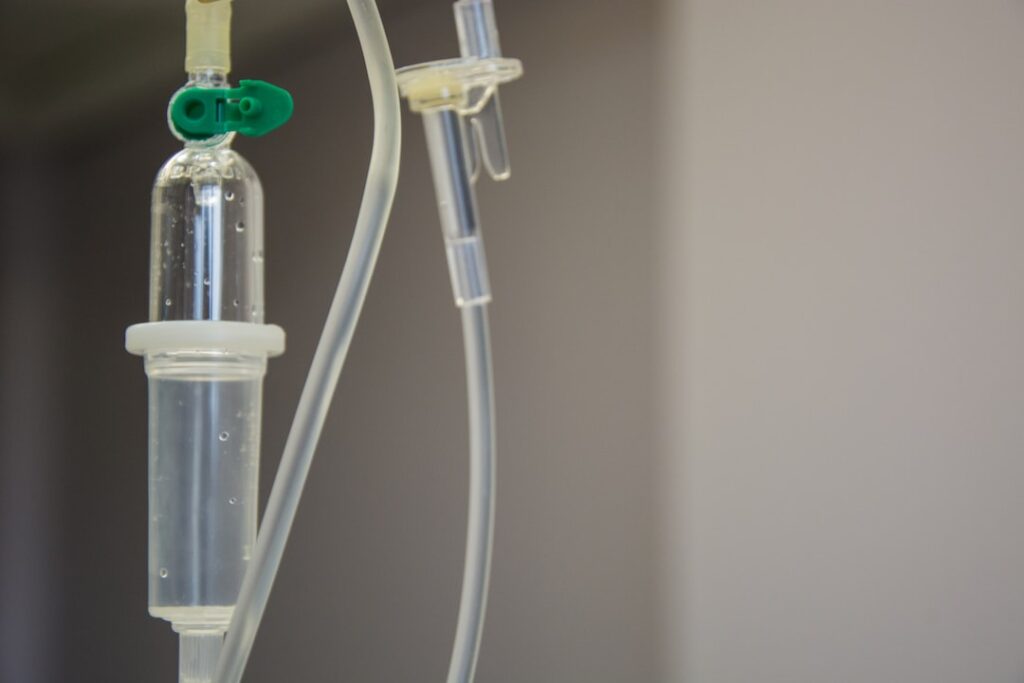Tinnitus is a condition that affects millions of people worldwide, causing a constant ringing, buzzing, or hissing sound in the ears. It can have a significant impact on individuals’ lives, affecting their sleep, concentration, and emotional well-being. The purpose of this blog post is to provide information on tinnitus, including its causes, symptoms, diagnosis, treatment options, and tips for coping with it. It is important to seek professional help for tinnitus relief, as they can provide the necessary guidance and support to manage the condition effectively.
What is Tinnitus?
Tinnitus is a condition characterized by the perception of sound in the ears or head without any external source. It can manifest as a ringing, buzzing, hissing, or roaring sound. Tinnitus can be classified into two types: subjective and objective. Subjective tinnitus is the most common type and can only be heard by the person experiencing it. Objective tinnitus, on the other hand, can be heard by both the person experiencing it and others around them.
The prevalence of tinnitus in Malaysia is estimated to be around 10-15% of the population. Worldwide, it is estimated that over 300 million people suffer from tinnitus. It can affect individuals of all ages, but it is more common in older adults.
Causes of Tinnitus
There are several factors that can cause tinnitus. One of the most common causes is exposure to loud noise, such as listening to loud music or working in a noisy environment. Other causes include ear infections, certain medications (such as antibiotics and chemotherapy drugs), and age-related hearing loss.
Age-related hearing loss is a common cause of tinnitus in older adults. As we age, the cells in our inner ear that are responsible for detecting sound can become damaged or die off. This can lead to hearing loss and tinnitus.
Tinnitus can also be linked to other health conditions, such as high blood pressure and anxiety. It is important to identify and address any underlying health conditions that may be contributing to tinnitus symptoms.
Symptoms of Tinnitus
Tinnitus can manifest as different types of sounds, including ringing, buzzing, hissing, or roaring. The sound can be constant or intermittent and can vary in intensity. It can affect one or both ears.
Tinnitus can have a significant impact on individuals’ quality of life. It can make it difficult to sleep, concentrate, and perform daily activities. It can also cause emotional distress, leading to anxiety, depression, and irritability.
It is important to identify the severity of tinnitus symptoms for effective treatment. Mild cases of tinnitus may not require treatment, while severe cases may require more intensive interventions.
Diagnosis of Tinnitus
Diagnosing tinnitus involves a thorough evaluation by a healthcare professional, such as an audiologist or an ear, nose, and throat (ENT) specialist. The process typically includes a physical examination, hearing tests, and imaging tests.
During the physical examination, the healthcare professional will examine the ears and ask about the individual’s medical history and any medications they are taking. Hearing tests, such as audiometry and otoacoustic emissions (OAE) testing, can help determine the extent of hearing loss and identify any underlying conditions that may be contributing to tinnitus.
Imaging tests, such as magnetic resonance imaging (MRI) or computed tomography (CT) scans, may be ordered if there is suspicion of an underlying structural abnormality in the ear or head.
It is important to seek a professional diagnosis for tinnitus, as it can help identify any underlying health conditions that may be contributing to the symptoms. This will guide the appropriate treatment plan.
Effective Tinnitus Treatment Options

There are several treatment options available for tinnitus relief. The most suitable option will depend on the individual’s unique needs and the severity of their symptoms.
Sound therapy is a common treatment option for tinnitus. It involves using external sounds, such as white noise or nature sounds, to mask or distract from the tinnitus sound. This can help individuals focus on other sounds and reduce their perception of tinnitus.
Cognitive-behavioral therapy (CBT) is another effective treatment option for tinnitus. It involves working with a therapist to identify and change negative thought patterns and behaviors associated with tinnitus. This can help individuals develop coping strategies and reduce the emotional distress caused by tinnitus.
Medication may be prescribed to manage tinnitus symptoms, particularly if there is an underlying health condition contributing to the symptoms. Medications such as antidepressants, antianxiety drugs, and anticonvulsants may be used to alleviate tinnitus symptoms.
For individuals with hearing loss and tinnitus, hearing aids or cochlear implants may be recommended. These devices can help amplify external sounds and improve overall hearing, which can in turn reduce the perception of tinnitus.
It is important to seek professional advice on the most suitable treatment option for each individual’s unique needs. A healthcare professional, such as an audiologist or ENT specialist, can provide guidance and support throughout the treatment process.
Audiologist Near Me: Finding the Right Specialist
When seeking treatment for tinnitus in Kota Bharu, it is important to find a qualified audiologist who specializes in tinnitus treatment. An audiologist is a healthcare professional who specializes in evaluating and treating hearing and balance disorders.
To find a qualified audiologist in Kota Bharu, you can start by checking their credentials and experience. Look for audiologists who are licensed and have received specialized training in tinnitus management. You can also ask for recommendations from your primary care physician or friends and family who have sought treatment for tinnitus.
It is important to choose an audiologist who has experience in treating tinnitus, as they will have the necessary knowledge and expertise to provide effective treatment and support.
Hearing Solutions Near Me: Choosing the Best Option
When seeking treatment for tinnitus, it is important to consider the different types of hearing solutions available. Hearing aids and cochlear implants are two common options for individuals with hearing loss and tinnitus.
Hearing aids are small electronic devices that are worn in or behind the ear. They amplify external sounds and improve overall hearing. Many modern hearing aids also come with built-in tinnitus masking features, which can help reduce the perception of tinnitus.
Cochlear implants are surgically implanted devices that bypass the damaged parts of the inner ear and directly stimulate the auditory nerve. They are typically recommended for individuals with severe to profound hearing loss who do not benefit from hearing aids. Cochlear implants can also help alleviate tinnitus symptoms in individuals with hearing loss.
When choosing the best hearing solution, it is important to consider individual needs, lifestyle, and budget. An audiologist can provide guidance on the most suitable option based on these factors.
Finding Relief: Tips for Coping with Tinnitus
In addition to seeking professional treatment, there are several practical tips that can help individuals cope with tinnitus on a daily basis.
Avoiding loud noise is one of the most important steps in managing tinnitus. Exposure to loud noise can worsen tinnitus symptoms and potentially cause further damage to the ears. It is important to use ear protection, such as earplugs or earmuffs, when in noisy environments.
Practicing relaxation techniques, such as deep breathing exercises or meditation, can help reduce stress and anxiety associated with tinnitus. Stress and anxiety can exacerbate tinnitus symptoms, so finding healthy ways to manage these emotions is crucial.
Seeking support from family and friends can also be beneficial in coping with tinnitus. Talking about your feelings and experiences with loved ones can provide emotional support and help reduce feelings of isolation.
Adopting a healthy lifestyle, including regular exercise and a balanced diet, can also help manage tinnitus symptoms. Exercise can improve overall well-being and reduce stress, while a balanced diet can support overall health and reduce inflammation in the body.
Taking Action for Tinnitus Relief in Kota Bharu
In conclusion, tinnitus is a common condition that can have a significant impact on individuals’ lives. It is important to seek professional help for tinnitus relief, as they can provide the necessary guidance and support to manage the condition effectively.
This blog post has provided information on tinnitus, including its causes, symptoms, diagnosis, treatment options, and tips for coping with it. It is important to take action to manage tinnitus symptoms and improve overall quality of life.
If you are seeking treatment for tinnitus in Kota Bharu, it is important to find a qualified audiologist who specializes in tinnitus treatment. They can provide the necessary evaluation, diagnosis, and treatment options based on your unique needs.
Remember, you don’t have to suffer in silence. Seek professional help and take control of your tinnitus symptoms today.
If you’re looking for the top audiologist in Malaysia to help with your tinnitus treatment in Kota Bharu, look no further than Hear Care Malaysia. Their article, “The Sound Solution: Unveiling the Top Audiologist in Malaysia,” provides valuable insights into the best professionals in the field. With their expertise and experience, they can guide you towards effective solutions for managing and treating tinnitus. Check out the article here to learn more about how Hear Care Malaysia can assist you on your journey to finding relief from tinnitus.
FAQs
What is tinnitus?
Tinnitus is a condition where a person hears a ringing, buzzing, or other sounds in their ears or head without any external source of sound.
What causes tinnitus?
Tinnitus can be caused by a variety of factors, including exposure to loud noises, ear infections, certain medications, and underlying health conditions such as high blood pressure or hearing loss.
What are the symptoms of tinnitus?
The main symptom of tinnitus is hearing sounds that are not present in the environment. These sounds can be continuous or intermittent and can vary in volume and pitch.
How is tinnitus diagnosed?
Tinnitus is typically diagnosed through a physical examination and hearing tests. In some cases, imaging tests such as an MRI or CT scan may be ordered to rule out underlying health conditions.
What are the treatment options for tinnitus?
Treatment options for tinnitus include sound therapy, cognitive behavioral therapy, and medication. In some cases, treating an underlying health condition may also help alleviate tinnitus symptoms.
Is there a cure for tinnitus?
There is currently no cure for tinnitus, but there are treatment options available to help manage symptoms and improve quality of life.

